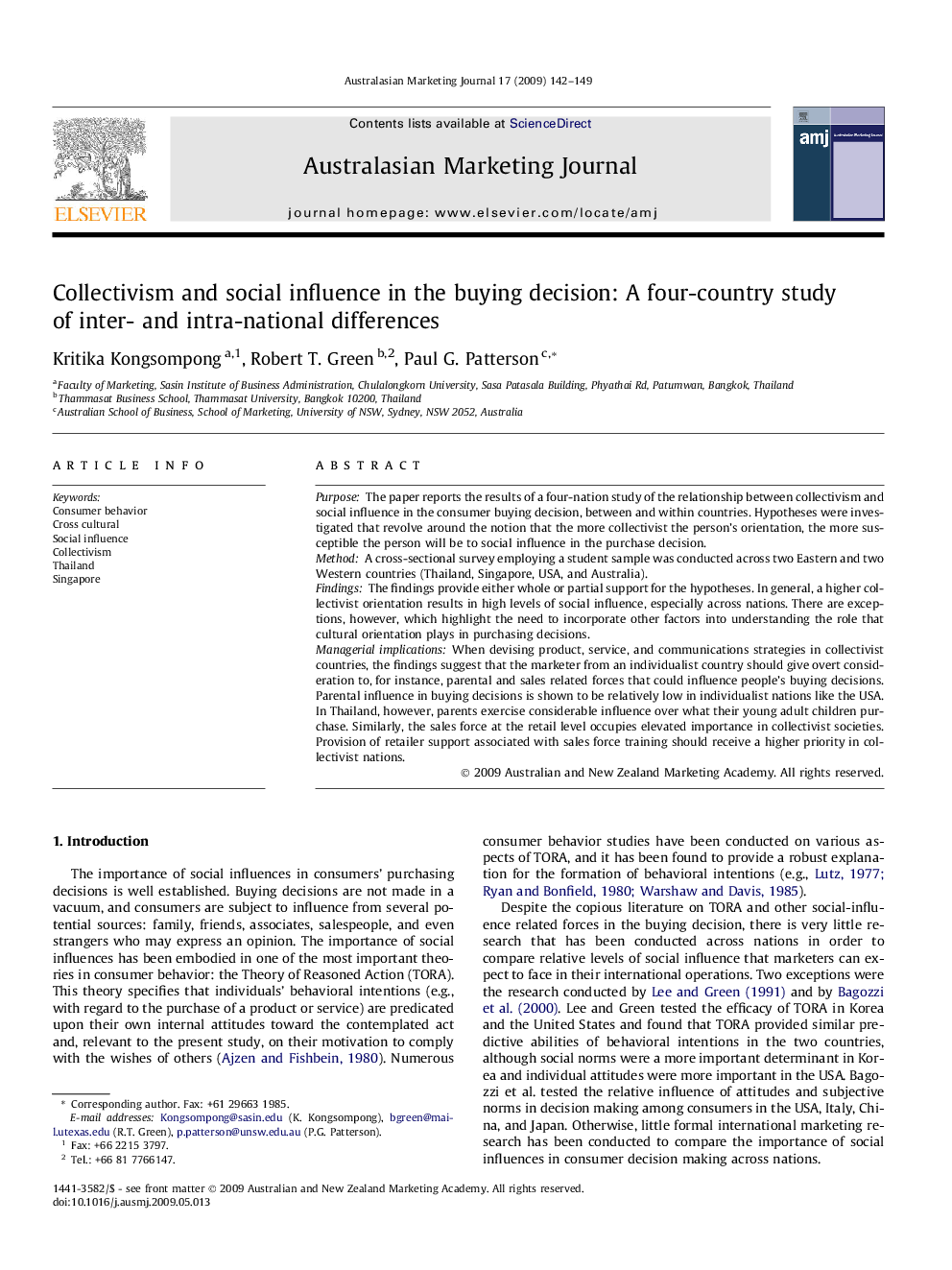| Article ID | Journal | Published Year | Pages | File Type |
|---|---|---|---|---|
| 1027184 | Australasian Marketing Journal (AMJ) | 2009 | 8 Pages |
PurposeThe paper reports the results of a four-nation study of the relationship between collectivism and social influence in the consumer buying decision, between and within countries. Hypotheses were investigated that revolve around the notion that the more collectivist the person’s orientation, the more susceptible the person will be to social influence in the purchase decision.MethodA cross-sectional survey employing a student sample was conducted across two Eastern and two Western countries (Thailand, Singapore, USA, and Australia).FindingsThe findings provide either whole or partial support for the hypotheses. In general, a higher collectivist orientation results in high levels of social influence, especially across nations. There are exceptions, however, which highlight the need to incorporate other factors into understanding the role that cultural orientation plays in purchasing decisions.Managerial implicationsWhen devising product, service, and communications strategies in collectivist countries, the findings suggest that the marketer from an individualist country should give overt consideration to, for instance, parental and sales related forces that could influence people’s buying decisions. Parental influence in buying decisions is shown to be relatively low in individualist nations like the USA. In Thailand, however, parents exercise considerable influence over what their young adult children purchase. Similarly, the sales force at the retail level occupies elevated importance in collectivist societies. Provision of retailer support associated with sales force training should receive a higher priority in collectivist nations.
